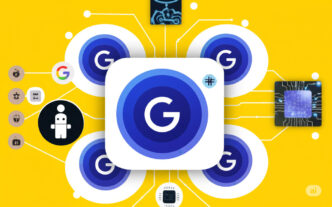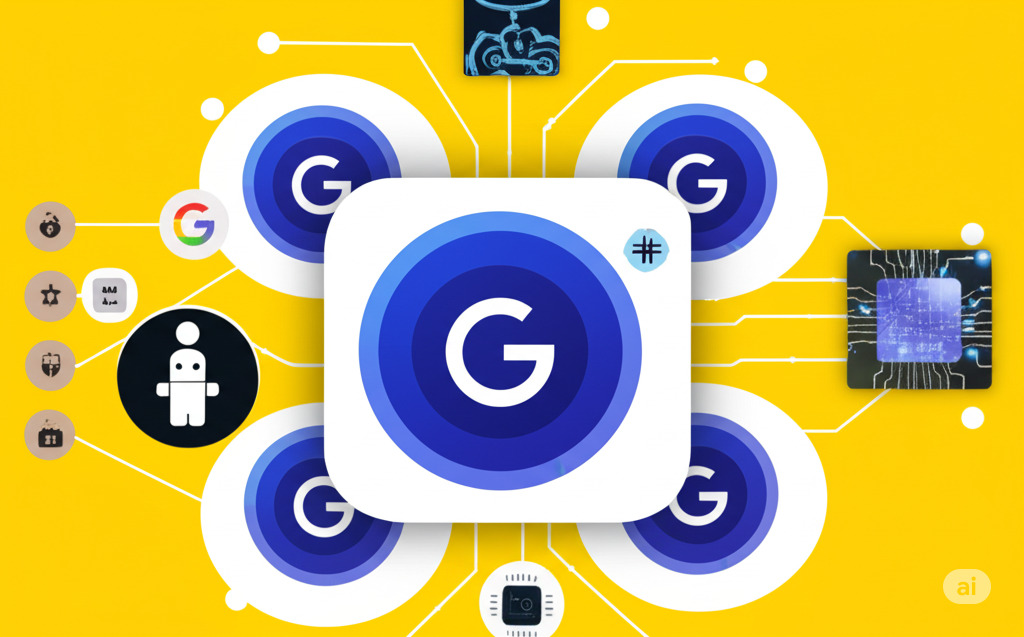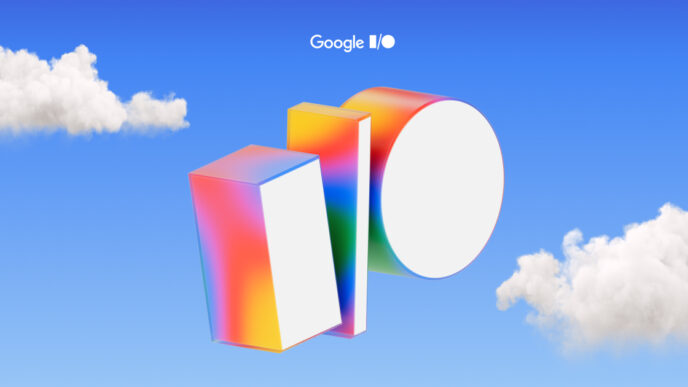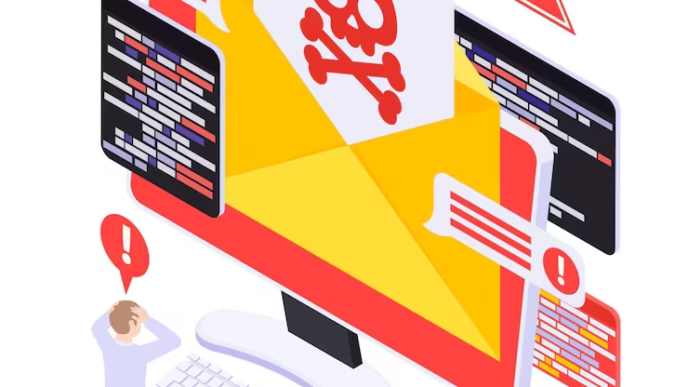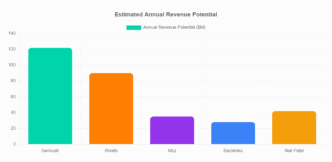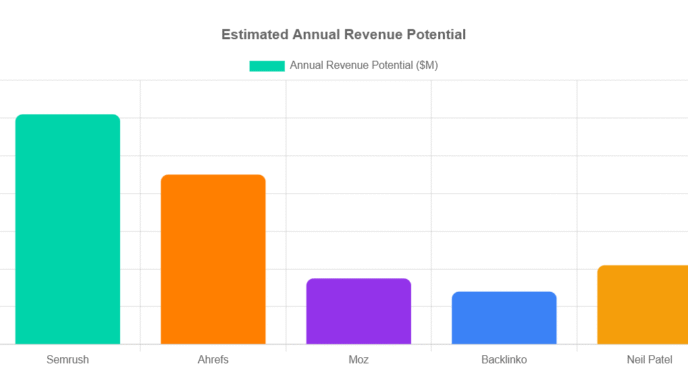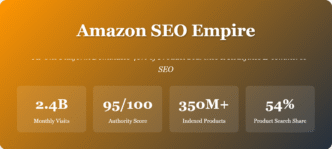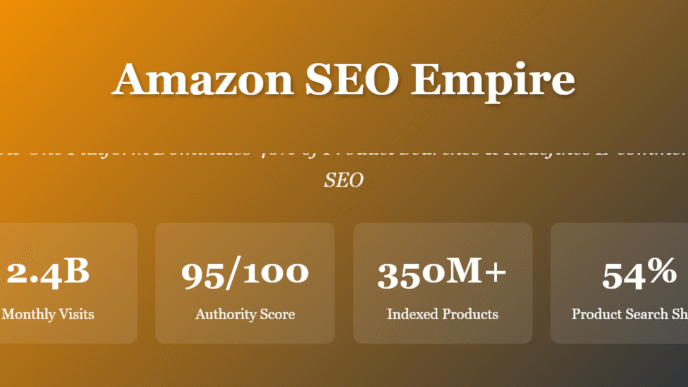Google I/O 2025 wasn’t just a conference—it was a declaration of intent. With Gemini 2.0 at the center, Google made it clear that its AI ambitions aren’t evolutionary—they’re revolutionary. Here’s a breakdown of the top 20 AI breakthroughs from the event and what they really mean for developers, consumers, and the future of computing.
Table of Contents
Toggle
1. 🚀 Gemini 2.0 Launches with Multi-Modal Supremacy
Forget GPT-4—Google’s Gemini 2.0 is now the most versatile multimodal AI model in the industry. It understands video, images, audio, and text natively—no need for separate plugins or wrappers. With real-time reasoning and ultra-low latency, Gemini 2.0 is baked into Android, Chrome, and Workspace.
Expert Take: This marks a fundamental shift—AI is no longer a separate assistant. It is the OS.
2. 🤖 AI Agents Go Autonomous
Google unveiled Project Astra, a platform for real-time AI agents that can see, hear, and act across apps, devices, and even the real world via AR glasses. These aren’t just chatbots—they’re autonomous systems with memory, goals, and sensory input.
Implication: We’re officially in the age of “Do-It-For-Me” computing. Agents will book your flights, design your presentations, or even refactor your code.
3. 🧠 Memory-Persistent AI: Gemini Remembers You
Gemini 2.0 introduces persistent memory features across its ecosystem. Your AI assistant now remembers preferences, prior interactions, and can act proactively based on context.
Why It Matters: Google just made AI personalized, without training from scratch—blending personalization with scale.
4. 📱 Android 15 + Gemini: AI-Native OS
Android 15 is built around AI, not just augmented by it. Gemini is embedded into the OS kernel level, enabling context-aware suggestions, background summarization, and on-device generation—even offline.
What’s New: Phone calls can now be summarized, images generated in messaging apps, and accessibility improved for users with disabilities.
5. 🎥 Video Understanding AI
Gemini now processes live video input—like analyzing what’s happening in a room in real-time through AR glasses or a phone camera. This leap makes spatial computing practical and intelligent.
Use Case: Think of smart glasses that actually help you find lost keys or read a sign in a foreign language on the fly.
6. ✍️ AI Code Companion for Developers
Gemini Code Assist is a full-stack development partner with in-line debugging, architectural suggestions, and real-time collaboration.
Why Developers Care: It’s Copilot++ with Google’s search muscle—context-aware, multilingual, and deeply integrated into Android Studio and Firebase.
7. 🧩 Custom AI Workflows with Gemini Extensions
Gemini Extensions let developers integrate Gemini into custom APIs and data sources, meaning enterprise tools can now be fully AI-powered, securely.
Enterprise Insight: Expect a wave of vertical AI agents—from legal brief generators to supply chain optimizers.
8. 🌐 AI-Powered Search Evolves Again
Search is no longer a list of blue links. Gemini now powers Search Generative Experience (SGE) across Google.com—returning full answers, interactive diagrams, and multimedia responses natively.
Trend Watch: Search is becoming conversation-driven and generative-first. SEO will need to adapt fast.
9. 📸 AI in Google Photos: Beyond Editing
“Ask Photos” lets users query their photo library in natural language: “Show me my daughter’s birthday when we were at the beach.”
Privacy Note: All AI operations here run locally or in secure cloud enclaves with end-to-end encryption.
10. 📅 Workspace x Gemini Integration
Google Docs, Sheets, and Slides now feature live AI agents. Think writing assistants, meeting summarizers, and even project planners—embedded and responsive in real time.
Game-Changer: Meetings transcribed, action items extracted, and next steps auto-drafted—before the call ends.
11. 🎵 AI Music Generation: YouTube Music Composer
Google introduced an AI-powered tool in YouTube Music that lets users generate original soundtracks from text prompts or humming a melody. Integrated directly into the app, it supports mood-based composition, genre transitions, and background scores for creators.
Expert Take: Google’s edging into territory dominated by platforms like Suno and Udio, but with seamless integration for billions of YouTube users.
12. 🕶️ ARCore Gets Gemini Boost
ARCore, Google’s AR development framework, now uses Gemini to deliver real-time spatial understanding, voice-guided navigation, and object recognition. Imagine pointing your phone at a building and getting instant historical facts or entering a store and receiving personalized deals.
Implication: This is a massive leap for context-aware AR, pushing Google ahead of Apple Vision Pro in ambient intelligence.
13. 🎓 Gemini Tutors in Google Classroom
AI-powered tutors are now part of Google Classroom. These agents can explain concepts, adapt to each student’s pace, and offer quiz feedback in real-time—backed by Gemini’s multimodal reasoning.
Why It Matters: Personalized education at scale is finally here. It’s like having 1:1 tutoring for every student, every day.
14. ⚖️ AI in Healthcare & Law (Private Beta)
Google quietly launched limited pilots of Gemini-powered agents in healthcare diagnostics and legal document analysis, focusing on summarization, anomaly detection, and pattern recognition. Heavily regulated and sandboxed, but undeniably powerful.
Cautionary Note: The ethical, regulatory, and liability landscape here is complex—but Google’s making its move toward vertical, domain-specific AI.
15. 📱 Gemini Nano: AI for Low-Power Devices
Gemini Nano is the lightweight sibling of Gemini 2.0, designed to run fully on-device on smartphones, watches, and wearables—no cloud required. Features include voice-to-text, translation, and summarization even when offline.
Key Advantage: Ultra-low latency and full privacy. Google is hedging against cloud backlash by going local.
16. 🛠️ Custom Model Builder for Enterprises
Google Cloud users can now fine-tune Gemini using their own proprietary datasets—with no ML expertise needed. Think of it as drag-and-drop model customization with built-in governance and compliance.
Enterprise Impact: This unlocks serious value in industries like finance, logistics, and healthcare, where data sensitivity is critical.
17. 🔐 AI Safety & Transparency Toolkit
With growing concerns around AI hallucinations and bias, Google announced a full toolkit with verifiability scores, provenance tracking, and watermarking for generated content. It even provides “explainability reports” for enterprise models.
Trust Factor: Google is aiming to lead on AI transparency—before regulators force them to.
18. 💻 Select Open-Weight Gemini Models
In a nod to the open-source community, Google will release select Gemini Nano weights to researchers and developers later this year. This includes tooling for benchmarking, safety evaluation, and fine-tuning.
Why This Matters: Google is slowly opening the door to community trust and innovation—without fully going Meta’s route.
19. 🏠 Smart Home: Gemini-Powered Ambient AI
Google Home is getting smarter with Gemini integration: real-time memory of your preferences, predictive automation, and contextual voice memory (e.g., “turn off the lights I left on last night”).
Big Picture: The smart home finally starts feeling smart—and less like a set of disconnected voice commands.
20. 🚗 Android Auto AI Co-Pilot
In-car experiences are transformed by Gemini’s driving assistant. It reads and summarizes messages, suggests detours based on weather, plays music based on your mood, and even predicts your errands based on calendar context.
Driver Safety Boost: Distraction-free driving meets personalized, anticipatory AI. Tesla’s Autopilot may lead on autonomy, but Google wins on intelligence.
📉 Risks & Watchpoints
Privacy Concerns: Persistent memory means deeper data—but Google has emphasized local compute and opt-in control.
Open vs Closed: While Gemini is powerful, its limited open-access contrasts with open-source models gaining traction (e.g., Meta’s LLaMA 3).
Over-Automation? Agent autonomy raises usability and ethical questions—who’s responsible for its actions?
🧠 Final Thought:
Google I/O 2025 signals one thing clearly: AI is no longer a feature—it’s the foundation. With Gemini 2.0 at the helm, Google is redefining how we code, learn, work, and live. From classrooms to car dashboards, from smart glasses to smart homes—AI is no longer optional. It’s ambient, personal, and persistent.
The verdict: We’re witnessing the dawn of AI-native ecosystems. This isn’t just about Google catching up—it’s about redefining the game.

